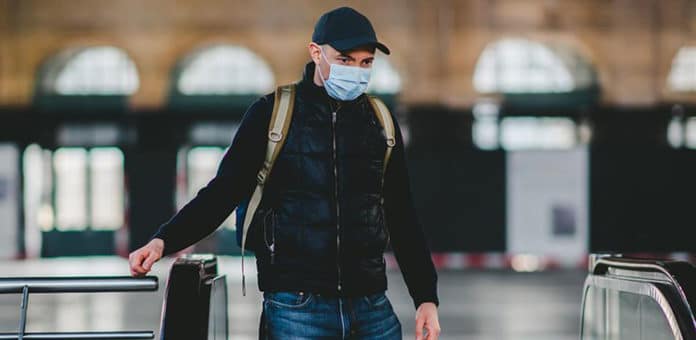Covering the face to protect against COVID-19 does not create a false sense of security. Likewise, it is probably not going to increase the risk of infection through wearers’ previous different practices, for example, proper hand hygiene. These claims are made by scientists from the University of Cambridge and King’s College London.
The idea of ‘risk compensation’ is a more noteworthy threat to public health. It may demoralize policymakers from executing conceivably effective measures, for example, face covering.
Through this study, scientists wanted to examine the evidence for risk compensation to check if concerns might be justified in the context of face coverings to reduce transmission of SARS-CoV-2.
Risk compensation is the concept where people have a target level of risk they are comfortable with, and they adjust their behavior to maintain that level risk. At an individual level, risk compensation is commonplace: for example, people run for longer to offset an eagerly anticipated indulgent meal, and a cyclist may wear a helmet to cycle at speed. At a population level, evidence for risk compensation is less clear. A commonly-cited example is the mandated wearing of bike helmets purportedly leading to an increase in the number of bike injuries and fatalities.
At least 22 systematic reviews have surveyed the impact of wearing a mask on the transmission of respiratory virus infections. These include six experimental studies, including a sum of 2,000 households – conducted in community settings that likewise measure hand hygiene.
While none of the investigations were intended to survey risk compensation or take a gander at social distancing, their results recommend that wearing masks doesn’t lessen the frequency of handwashing or hand cleaning. In fact, in two studies, self-reported rates of handwashing were higher in the groups allocated to wearing masks.
Three studies suggested people tended to move away from those wearing a mask, showing face coverings do not adversely affect physical distancing at least by those surrounding the wearer.
Though none of the studies have been peer-reviewed, they should be treated with caution.
Professor Dame Theresa Marteau at the Behaviour and Health Research Unit, University of Cambridge, said, “The concept of risk compensation, rather than risk compensation itself, seems the greater threat to public health through delaying potentially effective interventions that can help prevent the spread of disease.”
Co-author Dr. James Rubin from the Department of Psychological Medicine, King’s College London said, “Many public health bodies are coming to the conclusion that wearing a face-covering might help reduce the spread of SARS-CoV-2, and the limited evidence available suggests their use doesn’t have a negative effect on hand hygiene.”
Journal Reference:
- Mantzari, E et al. Is risk compensation threatening public health in the COVID-19 pandemic? BMJ Analysis; 27 July 2020: DOI: 10.1136/bmj.m2913
